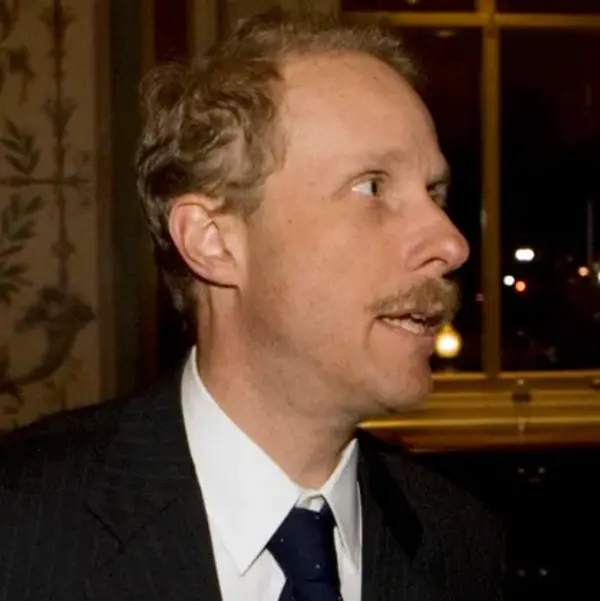- Home
- Billionaires
- Investing Newsletters
- 193CC 1000
- Article Layout 2
- Article Layout 3
- Article Layout 4
- Article Layout 5
- Article Layout 6
- Article Layout 7
- Article Layout 8
- Article Layout 9
- Article Layout 10
- Article Layout 11
- Article Layout 12
- Article Layout 13
- Article Layout 14
- Article Sidebar
- Post Format
- pages
- Archive Layouts
- Post Gallery
- Post Video Background
- Post Review
- Sponsored Post
- Leadership
- Business
- Money
- Small Business
- Innovation
- Shop
Recent Posts
Stephen Feinberg: A Complex Legacy of Leadership in Private Equity and Beyond

Stephen Feinberg, a name synonymous with the world of private equity, has built a career that straddles the heights of financial success and the complexities of public scrutiny. Cofounding Cerberus Capital Management in 1992, Feinberg established himself as a formidable force in the realm of private equity and investment. Over the decades, his leadership has defined Cerberus’s trajectory, making it a major player in global finance while also embroiling the firm in controversies that have shaped public perceptions of its operations.
Born and raised in a middle-class family, Feinberg exhibited an early aptitude for strategic thinking and an entrepreneurial spirit. After completing his undergraduate degree at Princeton University, he embarked on a career in finance, eventually cofounding Cerberus with William L. Richter. The firm took its name from the mythological three-headed dog guarding the gates of the underworld, symbolizing the founders’ intention to guard and grow their clients’ investments through rigorous and disciplined strategies.
Under Feinberg’s stewardship, Cerberus Capital Management grew rapidly, focusing on distressed assets, turnarounds, and undervalued investments. Feinberg’s approach was methodical yet bold, a blend of precision and risk-taking that yielded significant returns in many cases. The firm’s investments spanned a diverse range of industries, from automotive and real estate to financial services and retail. Feinberg’s ability to navigate complex financial landscapes earned Cerberus a reputation for decisiveness and strategic prowess.
One of the firm’s early successes was its investment in Chrysler, which Feinberg viewed as an opportunity to revive an iconic American brand. While the endeavor had mixed financial results, it demonstrated Cerberus’s capacity to operate in high-stakes environments. Feinberg’s hands-on involvement and unrelenting focus on operational efficiency became hallmarks of the firm’s philosophy.
However, Feinberg’s career has not been without its challenges. The most notable controversy erupted in 2013, when Cerberus came under fire for its investment in Freedom Group, a firearms manufacturer that produced the Bushmaster rifle used in the Sandy Hook Elementary School shooting. The tragic event, which claimed the lives of 20 children and six adults, cast a harsh spotlight on Cerberus and Feinberg’s decision-making. Critics questioned the ethical dimensions of the firm’s investments, and public pressure mounted for Cerberus to divest its stake in the company. In response, Feinberg expressed deep sympathy for the victims and their families, eventually committing to sell Cerberus’s interest in Freedom Group. This episode underscored the inherent tension between financial objectives and societal responsibilities in the world of private equity.
Despite the negative publicity, Feinberg continued to steer Cerberus toward new opportunities. The firm found renewed success with its investment in Albertsons, a grocery chain that became one of the largest food retailers in the United States. Under Cerberus’s ownership, Albertsons expanded its footprint, modernized its operations, and adapted to evolving consumer preferences. The deal highlighted Feinberg’s ability to identify and capitalize on value-creation opportunities, reinforcing Cerberus’s standing in the industry.
In addition to retail, Cerberus made significant strides in the global real estate market. The firm’s real estate funds targeted undervalued properties and distressed assets, generating impressive returns for investors. These successes reflected Feinberg’s acumen for identifying trends and leveraging expertise across diverse asset classes. His strategic foresight ensured that Cerberus remained a competitive force in the ever-changing financial landscape.
Beyond the financial realm, Feinberg’s influence extended into the public sector. In May 2018, then-President Donald Trump selected Feinberg to lead the President’s Intelligence Advisory Board, a body tasked with evaluating the effectiveness of the United States intelligence community. This appointment highlighted Feinberg’s reputation as a trusted advisor and a strategic thinker capable of navigating complex issues at the intersection of national security and public policy. While his role on the board remained largely advisory, it underscored his versatility and the breadth of his professional reach.
Feinberg’s leadership style has been characterized by a preference for privacy and discretion. Known for shunning the limelight, he has rarely given interviews or made public appearances. This low-profile approach stands in stark contrast to the larger-than-life personas often associated with leaders in the finance industry. Feinberg’s reserved demeanor has allowed him to focus on the intricacies of his work while minimizing distractions. However, it has also fueled curiosity and speculation about his personal beliefs, motivations, and long-term vision for Cerberus.
Colleagues and associates often describe Feinberg as a relentless perfectionist, driven by a commitment to excellence and a willingness to confront difficult challenges head-on. His ability to build and sustain relationships with key stakeholders has been instrumental in Cerberus’s growth. Whether negotiating complex deals, managing distressed assets, or overseeing the firm’s operations, Feinberg has demonstrated an unwavering dedication to achieving results.
Despite his successes, Feinberg’s career illustrates the complexities and contradictions inherent in the world of private equity. On one hand, he has created immense value for investors, revitalized struggling businesses, and contributed to economic growth. On the other hand, the controversies surrounding some of Cerberus’s investments serve as a reminder of the ethical dilemmas that often accompany high-stakes financial decision-making.
As Cerberus continues to evolve, Feinberg remains at the helm, guiding the firm through an increasingly interconnected and volatile global economy. His ability to adapt to changing circumstances, coupled with his deep understanding of financial markets, positions him as a pivotal figure in the industry. While the full scope of his legacy is still unfolding, there is no denying the profound impact Feinberg has had on the world of private equity and beyond.
In reflecting on Stephen Feinberg’s life and career, one is struck by the interplay of ambition, ingenuity, and controversy that defines his journey. From cofounding Cerberus Capital Management to navigating the firm through triumphs and trials, Feinberg has left an indelible mark on the landscape of global finance. His story is one of resilience, innovation, and the enduring quest to balance profitability with purpose—a narrative that continues to evolve with each passing year,
- Albertsons investment
- Business Expansion
- Business Success
- business turnaround
- Cerberus Capital Management
- Cerberus controversies
- Cerberus legacy
- Chrysler investment
- corporate ethics
- Corporate Strategy
- distressed assets
- Donald Trump
- Economic Growth
- entrepreneurial success
- Ethical Investing
- Financial growth
- Financial Industry Leader
- financial innovation
- Financial Markets
- financial returns
- firearms controversy
- firearms divestment
- Freedom Group
- Global Finance
- global real estate funds
- grocery retail sector
- investment controversies
- Investment Opportunities
- Investment Strategy
- leadership challenges
- Market Trends
- national intelligence role
- National Security Advisor
- Operational Efficiency
- President’s Intelligence Advisory Board
- Private Equity
- private equity challenges
- private equity investments
- private equity leadership
- public sector influence
- real estate investments
- resilience in business
- Sandy Hook controversy
- Sandy Hook response
- Stephen Feinberg
- Stephen Feinberg biography
- Stephen Feinberg leadership
- Strategic Decision-Making
- Strategic Foresight
Recent Posts
Categories
- 193 Countries Consortium Partner1
- 193cc Digital Assets2
- 5G1
- Aerospace & Defense48
- AI37
- Arts3
- Banking & Insurance11
- Big Data3
- Billionaires1,467
- Boats & Planes1
- Business332
- Careers13
- Cars & Bikes79
- CEO Network1
- CFO Network17
- CHRO Network1
- CIO Network1
- Cloud10
- CMO Network18
- Commercial Real Estate7
- Consultant1
- Consumer Tech194
- CxO1
- Cybersecurity73
- Dining1
- Diversity, Equity & Inclusion4
- Education7
- Energy8
- Enterprise Tech29
- Events11
- Fintech1
- Food & Drink2
- Franchises1
- Freelance1
- Future Of Work2
- Games149
- GIG1
- Healthcare79
- Hollywood & Entertainment203
- Houses1
- India’s 1000 Richest1
- Innovation46
- Investing2
- Investing Newsletters4
- Leadership65
- Lifestyle11
- Manufacturing1
- Markets20
- Media327
- Mobile phone1
- Money13
- Personal Finance2
- Policy569
- Real Estate1
- Research6
- Retail1
- Retirement1
- Small Business1
- SportsMoney42
- Style & Beauty1
- Success Income1
- Taxes2
- Travel10
- Uncategorized14
- Vices1
- Watches & Jewelry2
- world's billionaires1,436
- Worlds Richest Self-Made Women2
Related Articles
Antonia Ax:son Johnson & Family: A Legacy of Leadership and Sustainability
Antonia Ax:son Johnson stands as one of the most influential figures in...
By 193cc World's BillionairesMay 28, 2025The Life and Legacy of Roman Abramovich & Family
Roman Abramovich, a name synonymous with immense wealth, high-profile acquisitions, and global...
By 193cc World's BillionairesMay 28, 2025James Dyson: The Visionary Inventor Who Revolutionized Home Technology
James Dyson is a name synonymous with innovation, resilience, and engineering brilliance....
By 193cc World's BillionairesMay 28, 2025Brian Chesky: The Visionary Behind Airbnb’s Global Revolution
Brian Chesky, co-founder and CEO of Airbnb, stands as one of the...
By 193cc World's BillionairesMay 28, 2025















Leave a comment